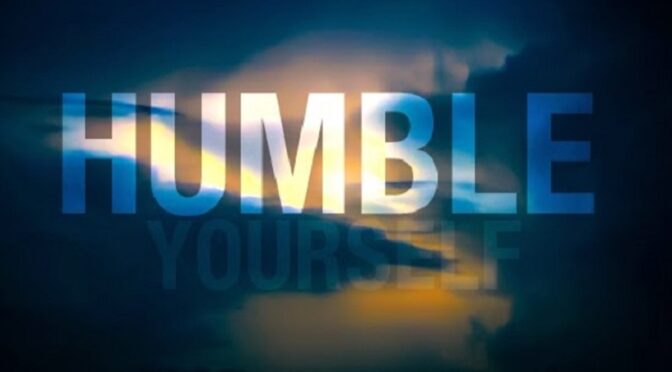Contents
Prologue
Following Jesus’ warning on the danger of not entering through the narrow door, and on the provoking saying that many who are first will be last while many who are last will be first, some Pharisees approached Jesus and asked him to leave because Herod intends to kill him. Jesus summarises his fearlessness, commitment, and conviction with his strong reply “go and tell that fox, behold, I cast out demons and I perform healings today and tomorrow, and on the third day, I accomplish my purpose. Yet I must continue on my way today, tomorrow, and the following day, for it is impossible that a prophet should die outside of Jerusalem” (Luke 13:32–33). Jesus describes Herod Antipas tetrarch of Galilee and Perea as a dog. Probably, Jesus was teaching within this region (cf. Luke 3:1; Matt 14:1).
Jesus Addresses the invitees – The call to humility
As stated above, Luke 14:7–8 explains that Jesus told the invitees the parable in vv. 9–11 when he saw how they struggled to occupy places of honour. The summary or the teaching of this parable is humility. It is an invitation to be humble and to humble oneself. Although we doubt how Muslims understand it, even the Qur’an also recommends humility (cf. Sūra LVII:16). Contrary to what many Christians (and others) think, humility is not a sign of the traditional Christians’ concept of spirituality, which is equivalent to foolishness and weakness. In the Biblical sense, humility (Greek: tapeinophrosunē) is freedom from pride and arrogance. It is humbleness and modesty; not exalting oneself to the detriment of others. It is that quality manifested by Jesus (cf. Phil 2:8) and with which Paul served God through humanity (cf. Acts 20:19). Therefore, Christians (and others) are entreated to conserve this quality and apply it in their interactions with one another (cf. Eph 4:2; Phil 2:3; Col 3:12; 1Pet 5:5). To the humble, Jesus promises the earth (cf. Matt 5:5). In the absence of humility, pride takes place with all its characteristics. In Luke 14:11, Jesus concludes his address to the invitees with these words “for everyone who exalts himself will be humbled, but the one who humbles himself will be exalted” (cf. also Matt 23:12). To be appreciated by God, we must be humble. This is the primary lesson of the First Reading (Sir 3:19–21.30–31). The invitees could be any of us.
Jesus Addresses the host
In the last part of the episode (Luke 14:12–14), Jesus gives unprecedented teaching to his host, the renowned Pharisee (and his invitees) concerning those he should not invite (v.12) and those he should invite (v.13), whenever he gives a luncheon or dinner. The radicalism of Jesus’ teaching is again underlined by the do not (Greek: mē) of verse 12 and the but (Greek: alla) of verse 13. Some might argue that Jesus exaggerated in the sense that he should have said invite also…. But Jesus does not share in the modern accommodating of things because of the urge to please people and be tagged ‘good.’ He speaks in a straightforward manner. From Jesus’ words, the Pharisees invited people from his class. In Luke 12:13–21, the rich farmer was described as a.…
Epilogue
Luke 14:1.7–14 should make us re-think our attitude towards power and recognition. The thirst for these (power and recognition) is the worst thing happening to humanity. Jesus emphasizes further the radical generosity and care that his disciples are to show toward those who are physically impaired and economically deprived. It is a challenge. Jesus’ primary reason for honouring the invitation of the Pharisee was to teach both the invitees (cf. Luke 14:7–11), the Pharisee himself (cf. Luke 14:12–14), and all of us, to desist from power obsession, to avoid discrimination, to care for the physically and materially less privileged, and to be humble. I doubt if contemporary Christians realize this.
FOR DETAILS, GET YOUR OWN COPIES OF THE BOOK “THE WORD OF LIFE:
SUNDAY REFLECTIONS” (vols. I‑II-III)!! The reflection for the 22nd Sunday is found in The Word of Life, vol. III, pages 484–495. Happy reading!
For details on how to get it, contact the author on this link: https://m.me/uchennabiblia?fbclid=IwAR2yeg4a6sDGBp9QGkIvKj6FSADumMokN6lshdE0zuo-JHs6qOmlhA7jyHo
or email me at: postmaster@uchennabiblia.com
or simply send an SMS on 08116100926, and I will get back to you.

